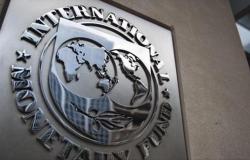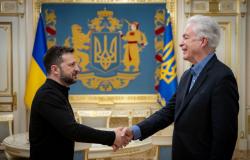The end of the 1980s saw the birth of one of the most popular game shows of recent decades: “The right price. » Candidates were invited to give the value of an object, as close as possible to its purchase price, to hope to win the ultimate prize. Although inspired by a famous American show (like everything that was best from this era), the economic notion of “fair price” is indeed French!
It comes to us from Thomas Aquinas. Dominican monk and future saint, he founded an ethical vision of exchange which is based on two forms of justice, which he takes from Aristotle: commutative justice (what one gives must be equal to what he receives ) and distributive justice (giving everyone their due). The price must not only be profitable for both parties, but also for good. There is therefore a link between the anthropological vision and the economic vision of Saint Thomas Aquinas, as Michel Musolino explains in The Giants of Economic Thought (Perrin).
From the idealism of Marx to the eco-anxiety of Malthus
The economics professor dusts off the legacy of seventeen great economists who left their mark on the history of ideas. Because if the level of French students in maths and sciences is below the OECD average, their economic culture is not doing much better. We can all ask ourselves: do we know the great economists? Any high school graduate will be able to cite a few among those that history and common knowledge have recognized as such. But what do we really know about Adam Smith and the « main invisible » or Léon Walras and his theory of general equilibrium?
To remedy this ignorance, Michel Musolino casts a wide net: from the idealism of Karl Marx to the eco-anxiety of Thomas Malthus, including the Schumpeterian theory of “the perpetual hurricane” or Joseph Stiglitz's commitment to the management of common goods… The reader will understand that the legacy of these thinkers is omnipresent, and not only when they conceived the principles which govern the choices of economic policies at the highest summit of the State. Michel Musolino reminds us that this effect “is visible in the simplest elements of daily life: from automobile technical inspections to tax scales or the abolition of military service. Everything has been thought out, designed by economists. Even the arrangement of dishes in school canteens.”
In fact, economics wanted to construct itself as a science and establish – like mathematics, whose tools it annexed – universal laws and absolute principles. She has succeeded in drawing on other disciplines and integrating them into her field of investigation. “Born in the shadow of other spheres of human knowledge – such as religion, which has governed human life for centuries – the economy has emancipated itself. It has become dominant, to the point that today it is hard to imagine a politician doing without the wise advice of economists, especially if he is destined for the highest responsibilities. underlines the essayist.
The rest after this ad
But beyond history, how can we think about the future? The present and pressing imperatives imply going beyond the founding paradigms of the economy, affirms Michel Musolino. The queen discipline of human behavior must once again submit to ethics and morality that are still foreign to it today. If we doubt it, the teacher reassures us: “ She can do it. Because economics has never been the discipline of ends. It was, is and never will be anything other than the discipline of means. »
The Giants of economic thought, from Saint Thomas Aquinas to Paul Romer, by Michel Musolino, 384 pages, 24 euros.






